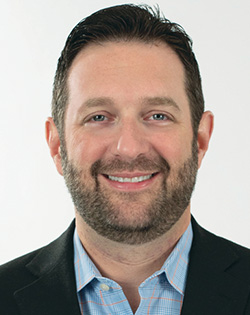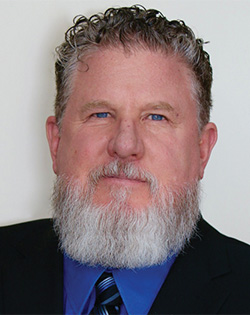

Sessions Include:
8:30 AM - 9:30 AM
Recent legal and legislative changes have left plan stakeholders in a state of uncertainty. Trustees and administrators must be prepared to adapt to ongoing changes in a tumultuous environment. This opening session will:
- Identify recent changes to government agencies (CMS, HHS, NSA and more)
- Interpret how these changes impact existing programs (the ACA, Medicare, Medicaid, COBRA and more)
- Review the impact on your plan and its participants
- Summarize compliance with rules and regulations
- Construct action steps for trustees, administrators and staff.
9:45 AM - 10:45 AM
This follow-up session will identify changes occurring at the state level that could have implications for plan participants nationwide. Session details will be tailored to attendees’ locations and aim to identify how these potential changes could impact plans and participants.
11:00 AM - 12:00 PM
The prescription drug landscape is characterized by unprecedented change. Plans continue to struggle to design affordable coverage that considers the rapid pace of new, high-cost entrants. This session will:
- Identify what’s coming down the pipeline (gene therapies, oncology treatments, biosimilars, GLP-1s and more)
- Describe the impact of patent expansion
- Provide an overview of emerging cost-management strategies
- Discuss legal and legislative implications.
-
Hope Nakazato
-
 Hannan Allen
Hannan Allen
1:00 PM - 2:00 PM
According to a recent study, 40% of U.S. adults are obese. What actions can stakeholders take to reduce this rate among their plan population? This session will pair the clinical perspective of these issues with a plan sponsor and will:
- Identify the root causes of obesity—How did we get here?
- Highlight the health impact of obesity (heart disease, diabetes, musculoskeletal issues and more)
- Discuss updates in preventive markets (diet, exercise, prescription therapies, bariatric coverage and more)
- Review the plan impact and appropriate action steps.
-
Devon Arndt
-
 Michael Brady
Michael Brady
2:15 PM - 3:15 PM
Proactive stakeholders are looking to evolve their efforts to better address the mental health and substance use disorder needs of their participants. How do plan sponsors design coverage that is both effective and affordable and has limited barriers to access? This session will:
- Provide a mental health level set, including identifying causes, symptoms, risk factors and preventive steps
- Describe the current provider landscape
- Classify psychedelic offerings (ketamine, LSD, MDMA, psilocybin and more)
- Identify plan design considerations
- Review where your plan participants can access appropriate resources.
3:30 PM - 4:30 PM
According to United States Sentencing Commission, health care fraud offenses have increased about 20% since 2020. The median loss of these offenses was over $2.5 million. It is essential for health plan fiduciaries to recognize these threats and take proactive steps to prevent them. This session will:
- Highlight your fiduciary obligations
- Identify the most common sources of health plan fraud
- Summarize new cybersecurity trends, including common threats, prevention steps and postbreach action steps
- Identify tools to protect your plan assets.
8:30 AM - 9:30 AM
Health plan stakeholders have access to an extensive amount of plan data. Plans are increasingly dedicating time and money to identify trends, and they are finding value in the process. How can fiduciaries utilize this data to better design their plans and drive informed health decisions? This session will:
- Discuss whether plan metrics are improving
- Highlight new metrics that should be tracked
- Review methods for requesting data from your professionals
- Identify how to find data patterns among your membership
- Summarize action steps based on your findings.
9:45 AM - 10:45 AM
Health plan fiduciaries have the legal obligation to monitor service providers and pay reasonable expenses for services. This can become increasingly difficult in a rapidly evolving provider landscape. This session will aim to:
- Illustrate steps to demystify your health plan spend
- Summarize the provider landscape update—Who are your professionals?
- Identify your fiduciary duties
- Review best practices in fulfilling your fiduciary duties.
11:00 AM - 12:00 PM
A recent study noted that about one in five in-network health care claims is denied. This interactive session will allow participants to ask questions about the approval process and work through case study examples. This session will:
- Describe the key reason that claims are denied
- Highlight when claims should and should not be denied
- Identify the steps involved in the appeals process
- Explore the legal ramifications of a claim denial
- Illustrate the importance of an advocate in the fund office.
1:00 PM - 2:00 PM
A panel of experts will discuss a number of emerging trends in the health space and debate their merits. Attendees will have the opportunity to vote on which topics will be discussed. Potential topics include:
- The use of artificial intelligence in health plans
- Coverage for weight-loss drugs, bariatric care and more
- Coverage for psychedelic treatments.
2:15 PM - 3:15 PM
Recent estimates have stated that as many as half of premature deaths are preventable, driven by behavioral factors such as physical inactivity, poor diet and tobacco use. This makes quality, well-researched information on preventive services an imperative part of your plan communication efforts. This wide-ranging session will:
- Highlight the importance of disease management initiatives
- Discuss women’s health initiatives in the preventive space
- Review lessons from the international health community
- Identify the importance of participant education and advocacy
- Examine methods for steering your participants to appropriate resources
- Explain effective communication initiatives for your participants.
3:30 PM - 4:30 PM
Health headlines overwhelmingly focus on negative trends, citing increasing costs and decreasing levels of quality. However, recent industry advancements have taken steps to reverse this slide. This finale session will:
- Examine the evolution of common conditions
- Identify changes in participant engagement levels
- Review scientific advancements (gene therapies, vaccines and more)
- Review technological advancements (self-service patient portals, wearable technology, 3D printing and more)
- Discuss potential success stories on the horizon
- Highlight the impact on plans and participants.

















